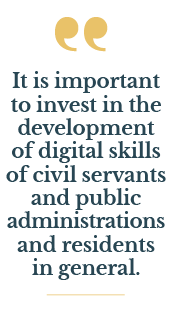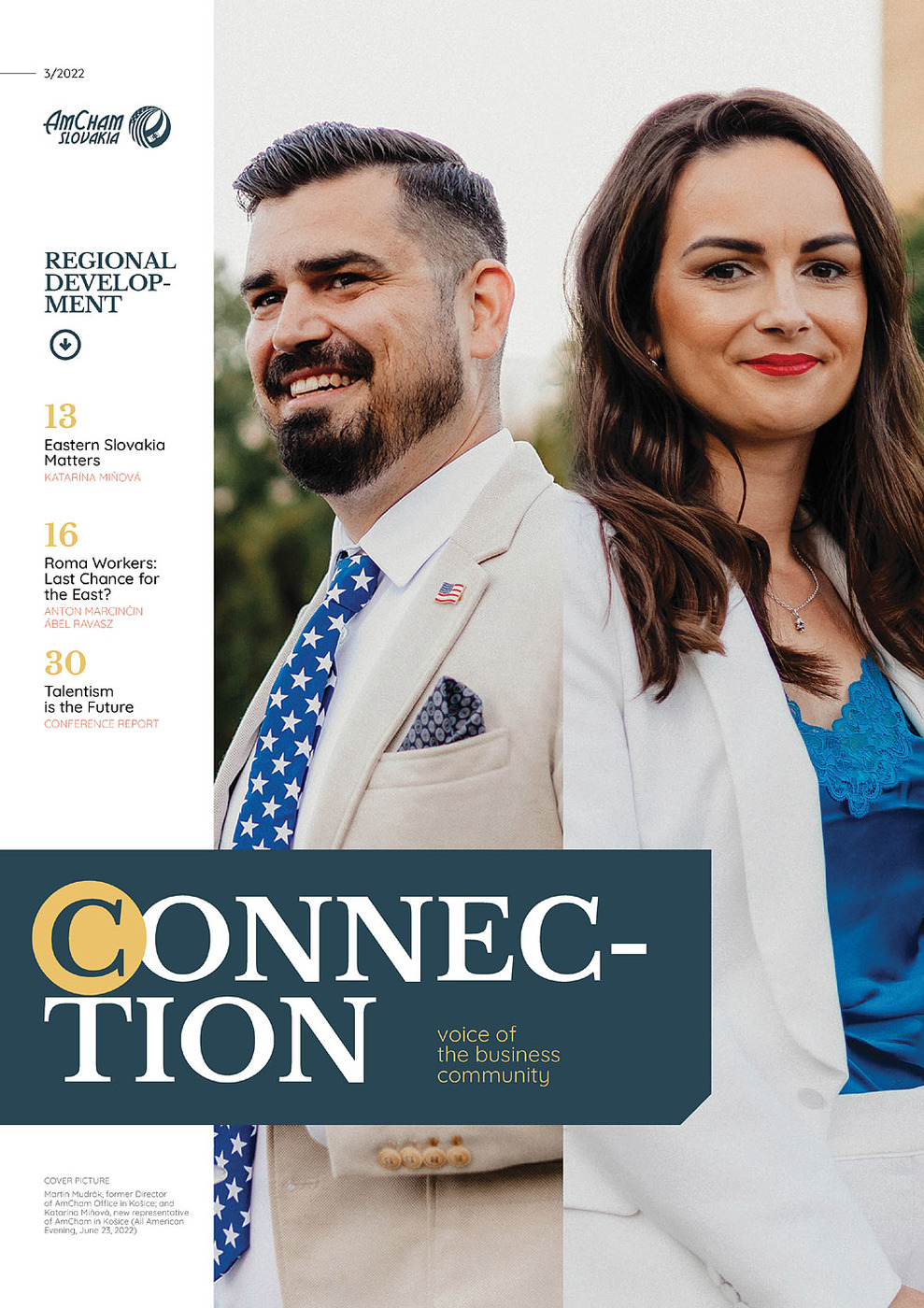The quality of data in state departments varies and a major investment in so-called data cleaning will be needed. An even bigger problem concerns the outdated concepts of state electronization – they are not based on data sharing between public administration institutions. Instead of verifying the actual situation in the registers, the electronic forms of paper extracts and certificates are still required in official proceed-ings.
An effective way to digitize
The inefficient way of digitization replicates decades-old bureaucratic ‘paperwork’ without making full use of what modern digital technologies allow today. This is the so-called e-government roughly in its present form.
“A completely new concept of digital public administration is more effective – decisions are made based on data registered by the state or municipality. This allows you to create services that don’t require addi-tional proof of information that the state already has, thus eliminating running around the authorities. Proceedings start automatically and the completion of the process in one resort will automatically start the process in another resort,” explains Emil Fitoš, President of the IT Association of Slovakia.
The digitization of public administration is one of the five most important priorities of the recovery plan. €1.1 billion has been earmarked for priority effective public administration and digitalization. The digitiza-tion of public administration has been given significantly more space than that of other sectors.
 Businesses can also help
Businesses can also help
The recovery plan aims to provide citizens with digital services that address their most common life situations in an attractive user form, ideally directly via a mobile device. It also aims to increase the number of users of such electronic services. If implemented successfully, this could result in an overall digitization of health, education or the electoral process.
One of the main themes of this component of the recovery plan is also the solution of so-called life situa-tions, “In the area of e-government, we would like to move from dealing with isolated electronic services to dealing with life situations such as the birth of a child. The aim of this section is to solve such complex life situations,” says Peter Kulich, Executive Director of the Civic Association Slovensko.Digital.
Beware of unprofitable projects
The debate about life situations has been going on for years. The problem, however, is that so far nothing has been done to improve the citizens’ experience. Another problem is the lack of professional people on the part of the state. Life situations are not isolated within one resort. We can see that cooperation is still stagnating and there is a lack of insight into things across the board.
“There are other experimental things in the component, such as quantum encrypted communications networks, supercomputer, and so on. I guess there’s a need, and we’re not completely questioning that idea. What we lack there, when the state already buys such technology, is the added value. The State could provide computing capacity to entrepreneurs who could also use it,” says Peter Kulich.
We are talking about various innovative start-ups and companies that have potential. The State could support them secondarily in this way, because normally companies would not get access to this kind of technology in Slovakia.
The funds from the recovery plan need to be spent by 2026, and there are also some milestones and conditions that need to be met. If they are not fulfilled, the Slovak Republic loses financial resources. It is essentially an incentive mechanism because the European Commission has already learned from the past.
Funds from the recovery plan should be perceived as a kind of loan. The Slovak Republic will repay this money and for this reason each of the investments should be very well thought out and profitable. “If we support something that will generate a problem for the future, we still have to return the money and at the same time we will create a long-term problem,” Mr. Kulich said.
Lifelong learning as a basis
The need for digital skills has also been a major theme for a long time. The IT Association of Slovakia has long stressed the acute need to improve the digital skills of the whole population. After all, according to the results of last year’s IT Fitness Test, the largest digital skills testing in Slovakia, the level of IT skills in Slovakia is declining.
The level of teaching STEM subjects in schools varies greatly, lacking compulsory math graduation. In the field of digital skills, thanks to external influences, dynamic developments are taking place. These skills continue to be a prerequisite for success in studies and in professional life.
It is important to invest in the development of digital skills of civil servants and public administrations and residents in general. At the same time, it is necessary to set up rapid and efficient procurement enabling the absorption of EU funds. Effective enforcement is a key factor in fulfilling defined strategies and projects.
For employers, the ability to work with digital office tools today is a must. No one will teach employees how to work with Excel, the cloud, or different apps. People should acquire these skills in high school, ac-cording to experts.
The Ministry of Investment, Regional Development and Informatization (MIRRI SR) supports and cooper-ates on the IT Fitness test, thus contributing to the activities of the Digital Coalition together with the Ministry of Education. Work on a strategy for the development of digital skills is under way, which can present a significant step forward.
“We are witnessing positive activities on the part of MIRRI SR. Unfortunately, the whole component of lifelong learning for digital skills has fallen out of the recovery plan. Most EU countries have this compo-nent in their plans. We are one of three countries that have not put adult lifelong learning and digital skills into the plan, and yet we are one of the worst European countries in this aspect,” adds E. Fitoš.
Microsoft Slovakia s.r.o.



Follow us